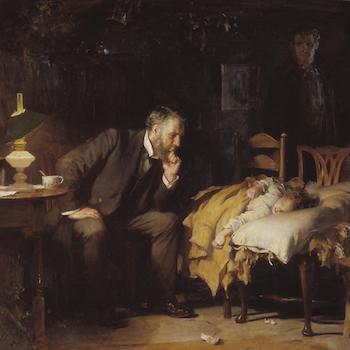Stat News just broke a story that has been picked up by the wider press and has generated quite a bit of excitement1. The gist is that early clinical trial results from Gilead show that its antiviral drug, remdesivir, has promise in treating patients with severe COVID-19.
But, as always, science advances in fits and starts. There are rarely any truly groundbreaking discoveries that happen overnight. So, let's discuss why we can be cautiously optimistic, but with caveats.
Does remdesivir successfully treat patients with COVID-19?
It appears the answer is "yes," but there are two major caveats: (1) Patients already requiring ventilators were excluded; and (2) There was no control group. The first caveat means that the absolute sickest patients -- people literally on their death beds -- were not included in the study. The second caveat is puzzling. Perhaps Gilead thought it was unethical to give the control group a placebo.
So, this is why it's not clear just how excited we should be. Still, there is reason to be hopeful: 113 patients in this part of the clinical trial were severely ill, but only two died.
Are there side effects?
Oh yes, and possibly very unpleasant ones. According to BioSpace:
"[A]bout 25% of patients receiving it have severe side effects, including multiple-organ dysfunction syndrome, septic shock, acute kidney injury and low blood pressure. Another 23% demonstrated evidence of liver damage on lab tests."
This is one of the problems with developing antivirals. Viruses, by their nature, hijack our cells and take over their machinery. Therefore, any drug that targets a virus also (usually) inadvertently targets our own cellular machinery. It's sort of like having a terrorist holding you hostage inside your own house. The police could throw in some grenades to kill the terrorist, but they would also damage the house and possibly kill you, too.
On the other hand, it's possible that what are thought to be "side effects" of the drug are actually sequelae of COVID-19. It's now thought that the coronavirus may be causing damage to other organs, including the heart and kidneys.
If remdesivir didn't work against Ebola, why would it work against coronavirus?
That's a great question, and it's one that was expertly handled by my colleague, Dr. Josh Bloom2. The answer involves fairly sophisticated biochemistry, but the punchline is that the drug is far better at binding to a particular kind of coronavirus enzyme than to the equivalent Ebola enzyme.
When will we know for sure if remdesivir works?
There are several ongoing trials, some of which won't be completed for a couple of years. One trial for patients with moderate COVID-19 will be completed this May, and it does have a proper control group. So, we should have a clearer answer next month.
When will the drug be ready?
According to FiercePharma, Gilead will have enough of the drug to fully treat 140,000 patients very soon, as in some of the product is ready to be shipped right now. Gilead plans another 360,000 courses by October and 1 million by the end of the year. A company in India is already working on a generic version of the drug.
Why does remdesivir have such a stupid name?
Blame the FDA and branding consultants. There are elaborate rules for the naming of drugs. But here's an easy one: Any drug that ends in "-vir" is an antiviral.
Notes
(1) Bizarrely, one of the article's authors, Matthew Herper, also retweeted a complaint that it is a "violation of trial integrity" to report on partial results. Apparently, Mr. Herper is condemning his own role in reporting the story.
(2) Dr. Bloom is so good at writing, that he'll make you think you're an expert in biochemistry and toxicology. But you are not. (And neither am I.) His explanations are simply that good.




